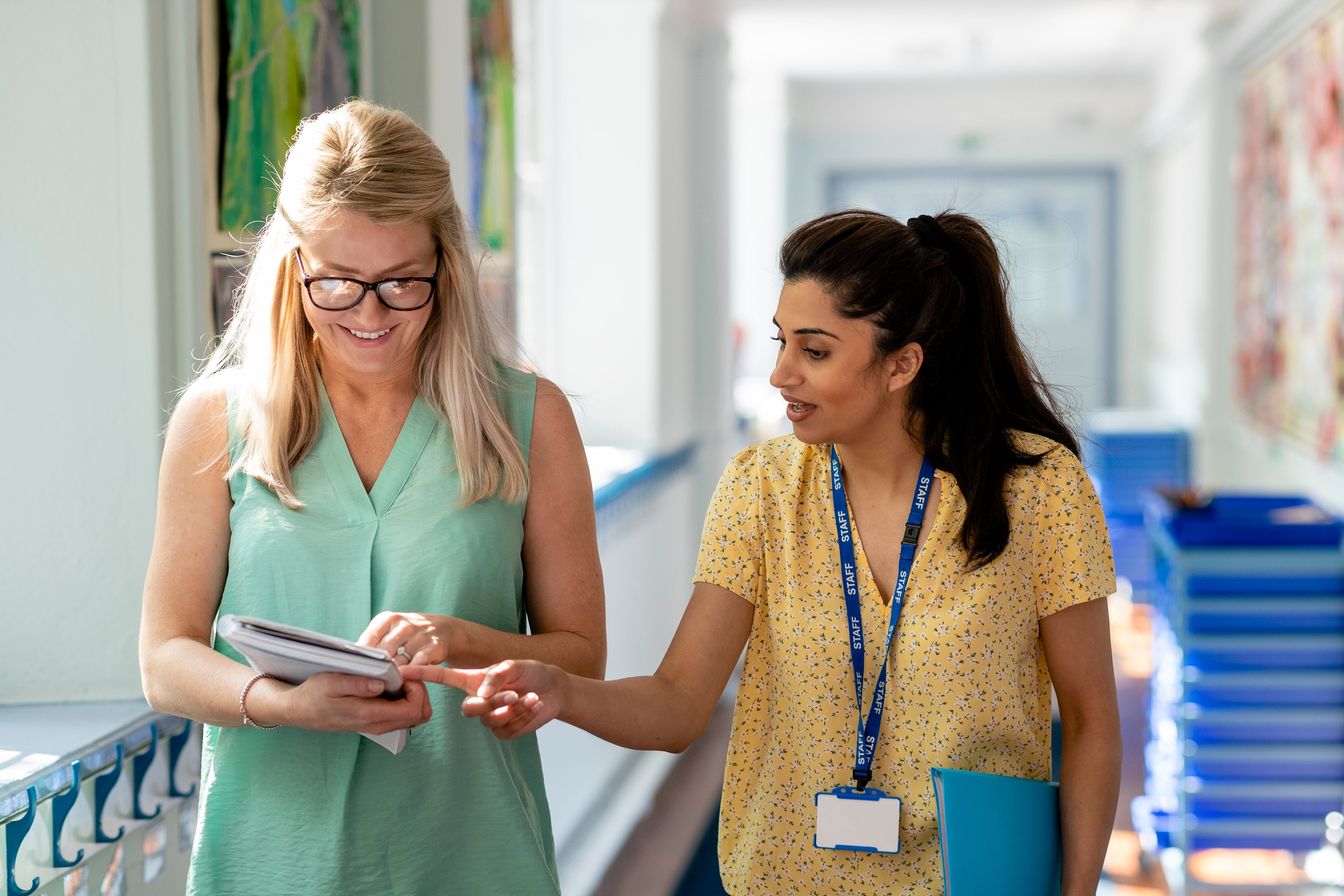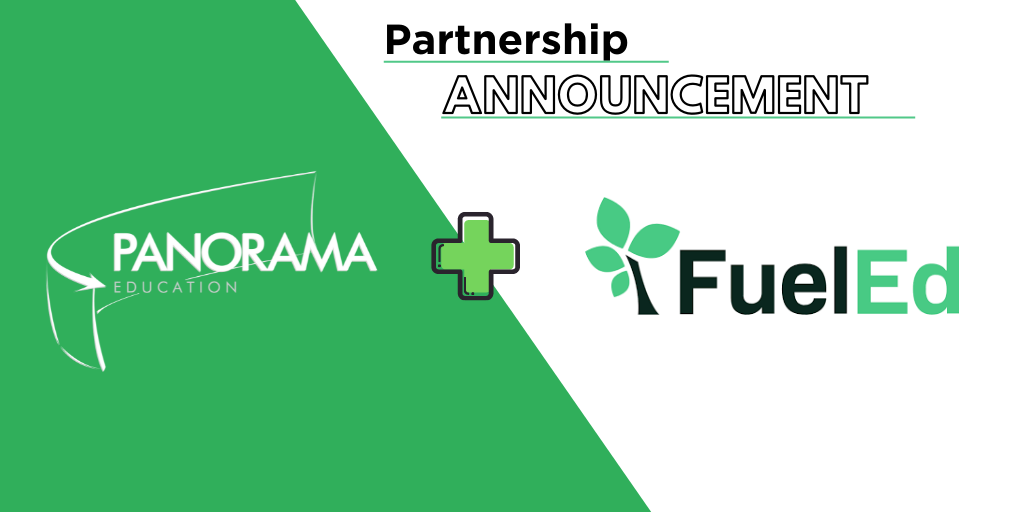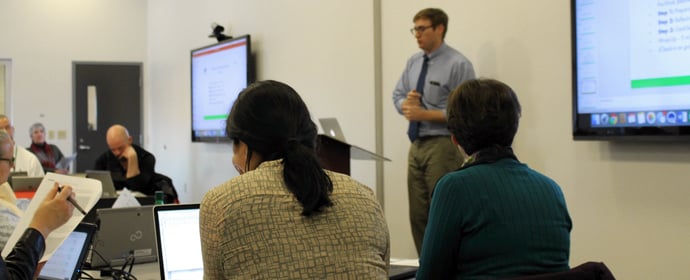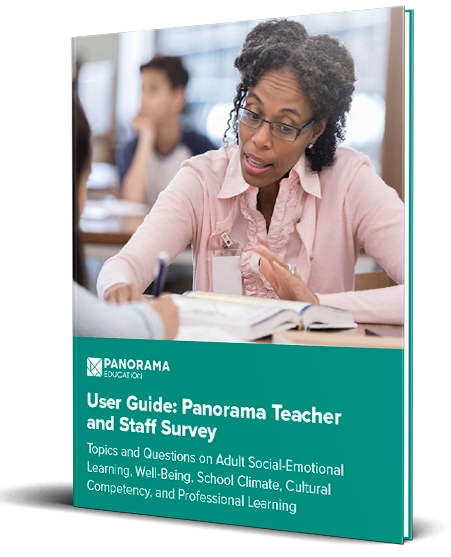So often, educators put the needs of their students before themselves. This goes for most caring adults in schools, from administrators to classroom teachers to support staff. But in order for schools to truly thrive, educators also need to feel cared for, valued, and supported.
No matter what your goals are for your district this year, ensuring teacher well-being will be vital to the success of any plan. After all, teachers who report high levels of well-being have lower levels of stress, higher rates of retention, and better relationships with students.
In this post, we’ll explore why teacher well-being is so important, and provide 17 questions you can ask to build trust and connection with teachers and staff in your district.
Download Panorama's Full Teacher and Staff Survey [With Questions Across 22 Key Topics]
Why Teacher Well-Being Matters
Teacher well-being can have a massive impact on how teachers show up in their classrooms. According to a 2022 report on educator well-being from the RAND Corporation (a public policy research organization), improving teacher well-being can increase job satisfaction, engagement, and retention rates. Teacher well-being also has an impact on student outcomes; research shows that teachers who report feeling less stressed and burnt out have better relationships with their students, and students have a better perception of their teachers.
But teacher well-being may well be at an all-time low. The RAND report found that teachers are twice as likely to suffer from job-related stress when compared to adults working in other professions. Many areas of the United States are facing teaching shortages, driven in part by widespread burnout, negative perceptions of school climate and culture, and tense political environments.
Although many aspects of this crisis are outside the control of school and district leaders, any initiatives to support teacher well-being will make an impact. By working to build trusting relationships with teachers and staff and listening to and acting on feedback, school and district leaders can create a culture where teachers feel heard, seen, and valued as professionals and as people.
17 Questions to Ask to Support Educator Well-Being
One way district leaders can help teachers is by checking in with them and learning about their experiences. Administrators should take the time to ask how teachers are feeling about their work and their relationships with their colleagues.
When you understand what your teachers need, you can take action to respond to them in meaningful ways—and let them know that they can count on you to be in their corner.
We’ve compiled this list of 17 questions you can ask teachers and staff to check in on their well-being and experiences at school
Use these questions in any way that makes sense for your community. Try creating an online form survey to send out to teachers, or ask some of these questions as a meeting warm-up activity. However you ask these questions, ensure that you’re setting up an open and welcoming environment for teachers to share their honest responses.
- How effective do you feel at your job right now?
- How much does your work matter to you?
- How meaningful to you is the work that you do?
- Overall, how satisfied are you with your job right now?
- What can school or district leaders do to better support your well-being?
- What has helped you most in managing work-related stress?
- What are the most positive aspects of working at your school?
- If you could change anything about working at your school, what would you change?
- How well do your colleagues at school understand you as a person?
- How connected do you feel to other adults at your school?
- What is one thing your fellow teachers can do to get to know you better?
- Who is someone at your school that you know you can count on?
- What makes you feel the most appreciated and understood?
- What is one thing you think you do well as a teacher?
- What is one thing you would like to do better as a teacher?
- What is the best way your school administrators can support you in your professional development?
- How would you like to be recognized for your successes?
Supporting Well-Being in 2025 and Beyond: Next Steps
By asking questions and connecting with the teachers and staff in your school and district, you take steps to build relational trust and foster a caring community for educators. This in turn leads to better outcomes for students.
Panorama’s survey tools can help you make a regular practice of elevating teacher, student, and family voice. Gather feedback and take meaningful action on data to improve your school’s community and culture.


.jpeg)




